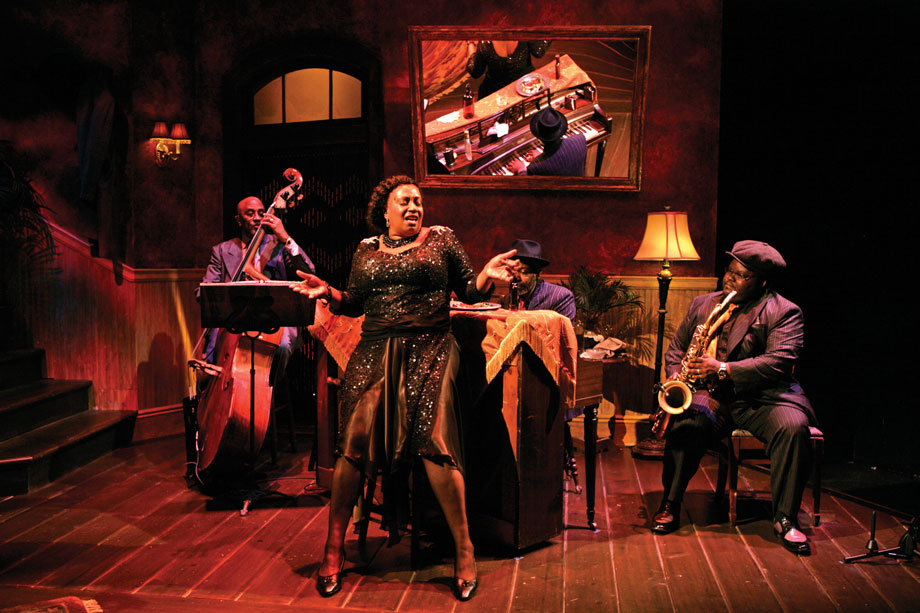
Photo by John Quilty.
Presented by Merrimack Repertory Theatre
By Angelo Parra
Concept, Musical Staging, and Direction by Joe Brancato
January 9th – February 2nd, 2014
Lowell, MA
MRT on Facebook
Review by Craig Idlebrook
(Lowell) Do you know the blues? I mean really know the blues?
I’m not talking about some wannabe pop singer appropriating the blues to make the crowd gasp on American Idol. I’m not talking about the rock n’ roll hybrid blues that the Rolling Stones used to distance themselves from the Beatles. I’m talking the unsanitized blues, rife with onion-skin-thin innuendo about graphic sex and domestic violence. It’s raw and splintered music, the kind where you can taste hunger and oppression and yet you laugh so you don’t cry.
And there was no one who embodied the freewheeling, X-rated blues better than Bessie Smith (Miche Braden), a hard-loving, hard-living woman who forged a stellar singing career in a racist and misogynistic world. In this nearly one-woman play (backup bands don’t count), we catch up with Smith as she’s unravelling just before her untimely death, but doing so in style. Giving an impromptu concert at a speakeasy after a white theatre wouldn’t let her use the front door, Smith opens up between blues tunes about her life and impending death.
There are many concerts that masquerade as plays out there, flimsy things that are just excuses for a cover band. This is not one of them. While the play never quite creates a full narrative in itself, it allows Smith to tell pieces of her story and sing songs she owns. Each moment creates an incomplete jigsaw puzzle that is like a jagged work of art.
The play succeeds largely because Braden wills it with her voice and her storytelling. She provides a manic and seasoned performance to shape Smith to be a desperate entertainer who still has enough juice to put together one last unforgettable night. Braden never stays at one level for more than a few beats, giving an exhaustive performance of Smith’s emotional range. Nowhere is this tact more successful than with a simple song which begins with Smith seemingly being seduced by the devil. By the end of the song, she holds the keys to hell and the devil at her mercy.
And when she sings it, it all looks utterly possible for one black woman to take control of hell, even while we know she can’t really unrun her fate in this world or the next. If she could, then it wouldn’t be the blues.
